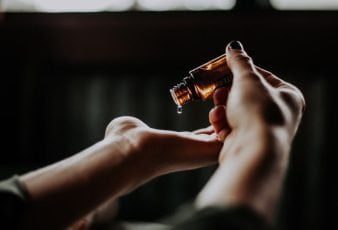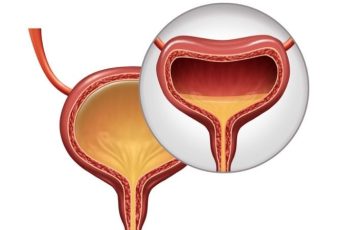Xerostomia, commonly known as dry mouth, presents a myriad of challenges that can significantly impact oral health and overall well-being. Understanding the causes, symptoms, and management of xerostomia is essential in alleviating discomfort and nurturing optimal oral health.
This detailed guide offers valuable insights into effectively managing xerostomia, empowering individuals to embrace practical solutions. By the end of it, you will know the potential causes and risk factors of xerostomia. So, without further ado, let’s get started.
Understanding Xerostomia

Xerostomia arises from reduced saliva production, leading to persistent dryness within the oral cavity. Various factors, including medication side effects, systemic conditions, nerve damage, and lifestyle habits, contribute to this condition. By comprehending the underlying mechanisms of xerostomia, individuals can gain clarity on its implications and treatment avenues.
For some individuals, xerostomia is quite annoying. Other people might get affected health-wise as their gums and teeth lose strength. It also impacts what kind of food they can eat, how much, and whether it’s enjoyable or not. Well, the goodness is the treatment for xerostomia exists!
Impact on Oral Health
The absence of sufficient saliva poses consequential effects on oral health. Saliva plays a pivotal role in neutralizing acids, cleansing the mouth, aiding in digestion, and maintaining oral moisture. Without adequate saliva, individuals are prone to heightened risks of dental caries, oral infections, discomfort while eating and speaking, and compromised overall oral health.
Symptoms and Complications
Recognizing the symptoms of xerostomia is pivotal in seeking timely intervention. Persistent dryness, difficulty swallowing and speaking, altered sense of taste, oral sores, and increased plaque buildup are indicative of this condition. Moreover, the potential complications, such as chronic bad breath, oral yeast infections, and difficulty wearing dentures, underscore the need for proactive management.
You can also tell it is xerostomia or dry mouth if your tongue is grooved or dry. A changed sense of taste, denture-related problems, and lipstick attached to teeth are some additional signs of dry mouth. Saliva inside the mouth avoids tooth decay as it washes away food particles and sugar accumulation. It removes bacteria and other harmful substances from the teeth as well as gums.
Lifestyle Modifications
Implementing lifestyle modifications can mitigate the impact of xerostomia. Strategies encompass staying hydrated, avoiding tobacco and alcohol, utilizing sugar-free lozenges or gum, humidifying the environment, and incorporating saliva substitutes to alleviate dryness. These measures aid in enhancing oral comfort and minimizing the adverse effects of decreased saliva flow.
We are not kids; more or less, we all know our health is affected by the food we consume. Altering our lifestyle habits can take a toll on our mouths. Similarly, if you want to fight xerostomia, you need to adopt some modifications yourself. Foods that can inflate your mouth condition must be strictly prohibited.
Dental Care Considerations
Tailoring dental care practices to accommodate xerostomia is essential. Individuals experiencing dry mouth should prioritize regular dental check-ups, meticulous oral hygiene, fluoride treatments, and prescribed remineralizing agents to fortify dental enamel. Collaborating closely with dental professionals ensures personalized care aligned with specific oral health needs.
You know it’s time to see a doctor if none of your symptoms wash away even after maintaining oral hygiene. Increased tooth decay, gum disease, and plaque are some risky complications that might occur. Besides, one can deal with mouth sores and split skin at the mouth’s corners.
Dental Implants and Xerostomia Management
For individuals dealing with xerostomia and seeking long-term solutions to oral health challenges, dental implants represent a promising option especially in Lynchburg, VA. Unlike traditional dentures, which can be difficult to secure in a dry mouth environment, dental implants offer a stable and permanent solution that does not rely on natural saliva to maintain comfort and fit.
Dental professionals in Lynchburg are equipped with the expertise to assess whether dental implants are a viable solution for patients with xerostomia, taking into consideration the overall health of the oral cavity and the specific needs of each patient. Incorporating dental implants as part of a comprehensive approach to managing dry mouth can significantly improve quality of life, allowing individuals to enjoy a broader range of foods and speak more comfortably without the worry of dentures slipping or causing irritation.
Medical Interventions
Exploring medical interventions for xerostomia involves addressing underlying causes and managing symptoms. Healthcare providers may recommend adjusting medication regimens, prescribing saliva-stimulating medications, conducting salivary gland assessments, and exploring innovative treatments to restore saliva production and alleviate discomfort associated with xerostomia.
Holistic Well-Being

Embracing a holistic approach to well-being complements the management of xerostomia. Nurturing overall health through balanced nutrition, stress management, and mindfulness practices contributes to systemic wellness, potentially influencing saliva production and oral moisture. This comprehensive perspective underscores the interconnectedness of oral health with overall vitality.
Empowerment through Knowledge
By delving into the multifaceted landscape of xerostomia, this guide endeavors to empower individuals with the knowledge and resources necessary to manage this condition effectively.
With insights into understanding the origins, impact, lifestyle adjustments, dental considerations, medical interventions, and holistic well-being associated with xerostomia, individuals can navigate the challenges posed by dry mouth with resilience and informed decision-making.
As individuals embark on the journey towards managing xerostomia, the pursuit of practical solutions holds promise for enhanced oral comfort and sustained well-being. Through proactive measures, professional guidance, and an empowered mindset, individuals can embrace a renewed sense of oral vitality and regain control over their oral health.
Concluding Words
Just like any other part of our body, our teeth and oral health also need careful consideration. It is in our hands to keep it safe from potential damage. While xerostomia can happen due to multiple reasons, it is absolutely in your hands to maintain them.
If you detect continuous pain, you should consult a medical professional. Allow me to conclude this article with that. I hope I could cover all the necessary points regarding xerostomia. But if there’s something you would like us to add, comment below without any hesitation. Thank you!
Read Also:





























